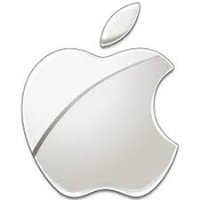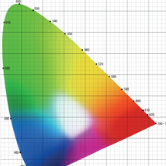-
Posts
1,481 -
Joined
-
Last visited
-
Days Won
19
Reputation
554 ExcellentAbout PookyMacMan

Profile Information
-
Gender
Male
-
Location
Earth–Western Hemisphere, specifically
-
Interests
Computer science, engineering, trumpet performance, and a host of others. :D
Contact Methods
-
Skype
happygalenboy
Recent Profile Visitors
-
Hi:
I understand the position regarding tonymacx86 and have no problem with that. However, there does need to be one clarification:
4. You must pay for the tonymac software.
From my experience, this is not correct. While they would like you to make a donation, it is not a must. Once you join, you have access to everything without having to pay...Thanks,
DeeAnn
-
Allan started following PookyMacMan
-
Universal binaries are hardly a new concept for Apple's OS. They, of all companies, know all about the...quirks...of mixing processor architectures In the past though, whether Universal binaries were for 68k/PPC or PPC/Intel, notice the OS was always the same. You built a single code base, and compiled for multiple architectures. So logically, macOS and iOS should be nearly one and the same for this plan to be effective. And while I like that idea in principle, it makes me nervous, because Apple's infamous tendencies toward mobile-oriented experiences would hint that it is more likely for Apple to remove valuable features from the system. And/or switch Macs to ARM architecture (actually not an unreasonable or novel prediction). Imagine having to jailbreak a Mac. That would be horrifying. Can't speak for Opera of course, but I wouldn't be surprised if most pro music software wouldn't make it on there regardless of reasonable changes. Soft synth manufacturers really, really, really don't want to play by anyone's rules but their own, especially the more they cost. MAS would make licensing schemes like EastWest's (using iLok) impossible, and some like Native Instruments are probably perfectly comfortable with their own licensing methods. But that's a bit of a tangent
-
It has a lot of potential, but the issue is still the same as with standard Linux: it needs money and some killer consumer features to win the market share. Money in order to convince OEMs it's worth it, and consumer features so that people will actually want to buy it over OS X and Windows. If Google were to head up the project, then it won't have money issues. But that would mean they would need to get off their ChromeOS hobby horse in order to develop a desktop Android, and I'm not so confident they'll do that. The one consumer feature I can think of is tight Android phone integration, similar to iOS and OS X. However, that would mean they would have to develop a system that would work with all the (very fragmented) forks of Android developed by mobile OEMs. All in all, there would need to be an appeal for a large following in order to gain market share. Without it it's in the same boat as Linux and all other minor OS'es. As for GUI...that's all dependent on the developers. I've seen really pretty Android interfaces and really ugly ones too.
-

30 years of the technologie's evolution
PookyMacMan replied to fantomas's topic in Reader News and Reviews
First of all, hope you're doing well, pal. Been a while since we've chatted. Personally, as one about to go into making new technology in the near future, I love all the new tech advances and I always support them for what they are. However, that doesn't mean that said advances should be used without wisdom. I think too many people forget that with more capability comes more responsibility. For example, with the World Wide Web we have an incredible resource of information that no other generation of humans has known, but we also have to sift through the information and determine/decide which should be considered valid or not. That takes an incredible level of critical thinking and discernment. We aren't used to technology progressing so fast - 30 years is not a long time. Five of my siblings are over that age. We've gotten so excited about what our tech is capable of that we forget how to operate it wisely in context of our daily lives. Our lives are more than computers or social media, even if some of us behave as though they are the only things that exist. Everyone should periodically take a step back and look objectively at the whole situation: look at how much we have to be grateful for! Look at how much we can do now! I must handle all these things even more carefully now, because so much is at stake! I need to learn how to handle all this capability with wisdom. One might say I'm taking this to far, philosophically. But I believe it is of the utmost importance. (Side note: these are all my personal views, I am not speaking on behalf of the staff or the site). -
Let me make it clear: this is not a hard-and-fast rule that will be strictly enforced. This is, as the title says, a guideline. We will only edit posts when there are extreme cases of illegibility.
-

iMac (24 2008) keep or sell?
PookyMacMan replied to sean blake's topic in Apple Opinions and Discussion
I personally like the 24" size, it gives more real estate than the 21" but it doesn't take up as much as 27". As far as using it for a basic productivity/study machine, it's more than suited for the task. Personally I'd throw an SSD in there, you wouldn't believe the performance increase (I did it in my late '08 MBP), even with SATA II. With an SSD you'd think it were a newer machine. I wouldn't sell it unless you've already got money saved, the most you'll probably get if it's stock specs is $650 or so. Maybe less these days. I'd keep it and use it if you aren't using it intensely. -
@Dan, the reason is simple, Intel hasn't released the quad-core Broadwells yet and that's why they didn't update the 15" Retina (or the iMac or Mac Mini for that matter). From what I've seen the WWDC announcement will probably have more in store (and it's usually when they release the higher end machines anyway).
-
Are you using the legacy kernel?
-
For the user I'm thinking of I'm mostly thinking of the sub notebook market. Like my mother: she would use the machine for web browsing, MS Office, and Skype. The Skype would be the most intense program she would run. She uses a flash drive maybe once a month (if that), and would connect a display less often. The port she would really use would be the headphone port. In this respect this machine would be a perfect fit, and I think there are many users like that. I think they believe since it draws as much power as an iPad, a normal USB cable will suit fine and a MagSafe would not be justified. Not that I agree but that seems like the logical conclusion.
-
Here's the issue with the MacBook IMO: it doesn't really fit an actual category bracket with specs and price. I don't even have an issue with the single USB port, and here's why: This machine looks like, from the specs, the ultimate budget user notebook. It's small, light, has Retina(!), and completely silent. Plus it'll come with 8GB RAM standard (enough for budget users), and 256GB SSD storage. The people this will appeal to (and I believe the focus) is the girl (or boy) who wants something trendy that's not complicated. And the fact that it doesn't have a power brick will appeal to many. But it is not for the power user. For most people this would appeal to, I could see the adapters not being an issue. People will get the $79 adapter and be done, they can connect the flash drive (which they probably won't use that much), an HDMI display, and still charge the thing. For anyone with any real computing needs, you'll still need the Air, which will still be a faster machine that the MacBook, or the Pro. And herein lies the issue: it's got budget specs, everything is in its favor to appeal to the mass-market Internet user, and it's $1299!!! That's the same as the Pro Retina 13"!! The price is the problem I see here, because it is basically spec'ed lower than the Air and it costs more than the Air, so the only thing that will actually draw anyone to it is the Retina display. The Air has an advantage in just about every other way, not to mention that you could get a Pro for that price. If the price were much lower, I think it would be a better product. Making a budget product with a pro price may very well be a big problem for Apple. I like the concept of the product, but the price will turn many away IMO.
-

Apple announces two new iPhones
PookyMacMan replied to fallen101's topic in Front Page News and Rumors
Interesting to see Apple make a phablet competitor...I don't know that Jobs would have approved. Nevertheless, I think it will probably sell well, if the same market that likes the Notes is drawn to the 5.5 inch iPhone. On the other hand, the gyro stabilization and higher battery life may appeal to a certain market as well. I could see the size lasting more than one generation, assuming the trend continues toward larger screens. Personally the lack of waterproof is going to keep me with the Xperia phones for this generation, though if iOS continues on an trend of openness I may jump ship in the next gen or 2. It all depends. -

Apple announced its first smartwatch called...
PookyMacMan replied to fantomas's topic in Front Page News and Rumors
My humble opinion: it's the classiest looking smart watch available, to me it seems to be a far superior design to the Galaxy Gear and the LG whatever-its-called. It's the only smart watch I'd be willing to buy, since it looks like a nice watch and not a geeky gimmick, despite being an Android fan. -

Dell Inspiron 15R Special Edition
PookyMacMan replied to TheNavigator's topic in OSx86 10.9 (Mavericks)
But of course, remember that it is a DP build so it will be more prone to instability. So if 100% reliability is a priority I would wait until Yosemite is released. Otherwise go for it. -

Dell Inspiron 15R Special Edition
PookyMacMan replied to TheNavigator's topic in OSx86 10.9 (Mavericks)
I think the function keys are related to the same kext that drives the touchpad if I remember correctly. I'll see if I can find it. By the way, I would avoid Yosemite for the time being if you were still thinking about it. Once it's released though you should have the same compatibility as Mavericks.















